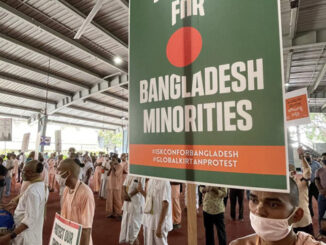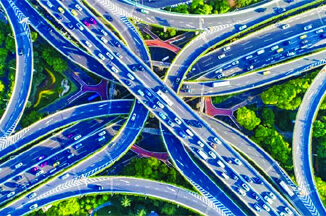
New Delhi (TIP)- The Bharatiya Janata Party’s (BJP’s) vote share in the 2024 general electioncontracted in most of the states and union territories (UTs) that had relatively low rates of growth in per capita income since the previous Lok Sabha polls in 2019, shows an analysis of Election Commission of India (ECI) data and per capita net state domestic product (NSDP) data from states. NSDP per capita is taken as the per capita incomeof a state and is counted among states’ key economic indicators.
Of the 12 states and UTs where per capita NSDP grew by a compounded annual growth rate (CAGR) of up to 2 per cent, and where the BJP contested in the recently-concluded Lok Sabha elections, the party’s vote share shrunk in nine. These nine states and UTs include Bihar, Maharashtra, Jharkhand, Haryana, Delhi, Uttarakhand, Goa, Manipur, and Chandigarh. Kerala, Sikkim, and Andaman and Nicobar Islands were the outliers to the trend.
For the purpose of this analysis, the CAGR of per capita NSDP was divided in three segments: low (up to 2 per cent), medium (2.1-4.0 per cent), and high (over 4 per cent). Among all states and UTs, the overall range of per capita NSDP CAGR ranged up to 6.1 per cent. CAGR was considered over absolute growth as per capita NSDP data for some states was not updated for 2023-24 (FY24) and was available either till FY23 or FY22. The base year for the comparison was taken as FY19. A few UTs that do not maintain per capita NSDP data were not considered.
While the data does suggest a correlation between per capita state income and the BJP’s vote share among most of the low-growth states, the trend is not as stark when it comes to states and UTs in the middle- and high-growth segments.
It is worth noting that like most economic indicators, per capita incomes and their growth rates vary across states and are contingent upon a number of factors and conditions. Also, election outcomes depend on a host of factors — many of which are not directly linked to the economy — and their various permutations and combinations.
Among the nine states with a per capita NSDP growth rate of over 4 per cent, the BJP registered an expansion in vote share from 2019 levels in five — Andhra Pradesh, Assam, Odisha, Chhattisgarh, and Tamil Nadu. Four states — Gujarat, Rajasthan, Karnataka, and Arunachal Pradesh, saw a contraction in the BJP’s vote share despite a relatively high rate of growth in their per capita incomes.
Similarly, the BJP’s vote share expanded in five of the nine states and UTs with per capita NSDP growth rate of 2.1 per cent to 4 per cent. These five states included Madhya Pradesh, Punjab, Telangana, Tripura, and Mizoram. The four where the BJP saw a decline in vote share were Uttar Pradesh, West Bengal, Himachal Pradesh, and Jammu & Kashmir.
41 parties to have MPs in 18th Lok Sabha; 339 members from BJP, Congress alone
As many as 41 political parties will have representation in the upcoming 18th Lok Sabha, with this number rising from 36 in the 17th Lok Sabha that was dissolved on Wednesday, post-poll data shows.
The two largest outfits – the ruling Bharatiya Janata Party (BJP) and the opposition Congress – will have 339 MPs in the 543-member House (BJP: 240, Congress: 99). The BJP, which fell 32 seats short of what would have been its third consecutive single-party majority (282 seats in 2014, and 303 in 2019), the Congress increased its tally from 44 seats in 2014 and 52 five years later.
The BJP, however, is set to form its third successive government at the Centre with help of its National Democratic Alliance (NDA) partners – Prime Minister Narendra Modi is likely to take oath on June 8 for what will be his third consecutive term in office. The NDA parties won 293 seats in the Lok Sabha.
The Congress-led INDIA bloc, on the other hand, will have 233 MPs, with Samajwadi Party (SP), the grand old party’s Uttar Pradesh-based ally, winning 37 seats in the country’s most populous state, making the Akhilesh Yadav-led party the largest after the BJP and Congress. The SP is followed by fellow INDIA members: West Bengal’s ruling Trinamool Congress (29 seats) and the DMK (22 seats), which governs Tamil Nadu.
National parties to have 64% seats
According to an analysis by the think-tank PRS, political outfits recognised as “national parties” secured 346 or 64% seats, while regional parties won 197 (33%) seats.
Candidates from non-NDA/INDIA parties clinched 17 seats, including seven by independents.
As per Association for Democratic Reforms (ADR), a poll rights body, the recently-concluded Lok Sabha elections were contested by 751 parties, up 104% from 2009, when nominees from 368 parties were in the fray. The number of parties that contested in 2014 and 2019 was 464 and 677, respectively, ADR said.
In the upcoming 18th Lok Sabha, as many as 526 candidates will be from the BJP-led National Democratic Alliance (NDA), which won 292 seats in the recently-held general elections, and the Congress-led INDIA bloc, which bagged 234 seats. The remaining 17 to-be Members of Parliament (MPs) do not belong to either bloc; seven of them contested and won as independents.
Who are these seven independents?
They are Amritpal Singh, Sarabjeet Singh Khalsa, Patel Umeshbhai Babubhai, Mohamad Haneefa, Rajesh Ranjan alias Pappu Yadav, Vishal Patil, and Sheikh Abdul Rashid alias Rashid Engineer. Two are currently in jail: Amritpal Singh and Rashid Engineer.
Profile
Amritpal Singh: Amritpal, who heads pro-Khalistan outfit Waris Punjab De, is currently lodged in Assam’s Dibrugarh jail under the National Security Act (NSA). He returned to India in September 2022 from Dubai, where he moved in 2012 to join his family’s transport business.
Sarabjeet Singh Khalsa: He is the son of Beant Singh, one of the two bodyguards who assassinated then-Prime Minister Indira Gandhi in October 1984. Singh’s grandfather, Baba Sucha Singh, also served as a Lok Sabha member, representing Bathinda.
Patel Umeshbhai Babubhai: Babubhai is a social worker, according to ADR. His victory is significant as he defeated sitting BJP MP Lalubhau Babubhai Patel, who was seeking a fourth successive term from the Daman and Diu seat.
Mohmad Haneefa: A former district president of the National Conference, Haneefa is the fourth independent to win the Ladakh seat, which came into existence in 1967. Independents won here in the 1984, 2004, and 2009 national election as well.
Rajesh Ranjan: Also known as Pappu Yadav, Ranjan merged his Jan Aadhikar Party (JAP) with the Congress in March. Ranjan, who has served multiple terms as a Lok Sabha member, contested independently after the Congress gave Purnia to the Rashtriya Janata Dal (RJD) under their seat-sharing agreement.
Vishal Patil: The grandson of former Maharashtra chief minister Vasantrao Patil rebelled against the Congress after the grand old party’s ally, Shiv Sena (UBT), fielded its own candidate.
Sheikh Abdul Rashid: Engineer Rashid is currently lodged in Delhi’s Tihar Jail in a terror-funding case. The former two-time legislator was arrested by the National Investigation Agency (NIA) in 2019 on charges of terror-funding activities, becoming the first mainstream leader to be held under the Unlawful Activities (Prevention) Act.





Be the first to comment